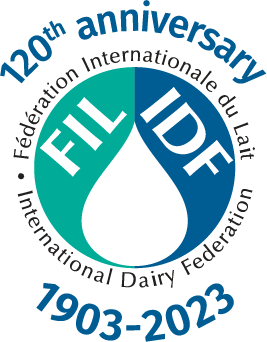Share this page
Composition of milk and milk products
Dairy foods are an important source of nutrients both children and adults alike.


Scientific evidence supports the importance of milk and dairy products as part of a healthy eating pattern. Dairy foods are not only excellent sources of calcium, vitamins B2 and B12, high-quality protein and carbohydrates in the form of lactose, but also rich in magnesium, potassium, various fatty acids and vitamin D (in fortified products).
Milk and other dairy foods are great sources of protein, calcium and vitamins for people in all walks of life, including children, adolescents, pregnant, adults and seniors.
People are generally aware of the benefits of milk and other dairy foods for bone and dental health, but more recently a large body of evidence has linked dairy intake also to other health benefits.
The importance of the dairy matrix in the evaluation of the nutritional quality and health effects of food.
Nutrition research has traditionally focused on identifying the specific mechanisms through which single nutrients impact on health – for example, associations between nutrients (such as calcium, protein or saturated fat) and positive health outcomes or disease risk factors.
More recently, however, nutrition research has shifted focus to examine the association of whole foods with health.
This includes recognizing that foods have numerous nutritional attributes but also that the effect of one attribute is likely dependent on the combination of nutritive attributes contained in the whole food.
- This may be linked to the unique combination of nutrients in dairy – the so-called dairy matrix – as the collective metabolic effects of whole dairy seem to be stronger than that of individual nutrients.
- Rather, the unique combination of nutrients and
bioactive factors, and how they interact with each other in the dairy matrix, combine to produce the
overall effect on health.


Dairy as a source of protein
Milk and dairy products can be important in diversifying the diet. They are nutrient-dense and provide high quality protein and micronutrients in an easily absorbed form that can benefit both nutritionally vulnerable people as well as healthy people when consumed in appropriate quantities and as part of healthy eating patterns.
Milk contains high-quality protein, which builds and repairs muscle tissue. In addition to protein, milk and dairy foods are also very important sources of several other nutrients that contribute to health and a well-balanced diet.
Milk & dairy foods are important sources of several nutrients
Calcium
Helps build and maintain strong bones and teeth
Riboflavin
Supports body growth, red blood cell production and metabolism
Phosphorus
Helps to strengthen bones
Pantothenic Acid
Helps convert food into energy
Potassium
Regulates fluid balance and helps maintain normal blood pressure
Vitamin A
Promotes good vision and healthy skin
Niacin
Promotes proper circulation
If you would like to know more, please read the IDF Factsheet ‘The Health Benefits of Dairy‘
Including milk and milk products in the diet is associated with better dietary quality. This IDF Factsheet gives examples of the extensive evidence that, as part of a balanced diet, daily consumption of dairy is beneficial to health.
Learn more about nutrition & health
The breadth of issues IDF covers in its work is extensive. Find out more about the work we do.
Dairy’s role in healthy eating patterns
Scientific evidence supports the importance of milk and dairy products as part of a healthy eating p...
Read MoreFacts about dairy nutrition and health
Find out more about the many health benefits of dairy with our milk and dairy nutrition facts.
Read MoreRelated reports & publications
IDF provides a permanent source of authoritative scientific and other information on a whole range of topics relevant to the dairy sector.
Bulletin of the IDF N° 505/2020: The contribution of school milk programmes to the nutrition of chi...
School milk programmes are common in many countries around the world, for good reason. The benefits of providi....
Related news & insights
IDF provides a permanent source of authoritative scientific and other information on a whole range of topics relevant to the dairy sector.











